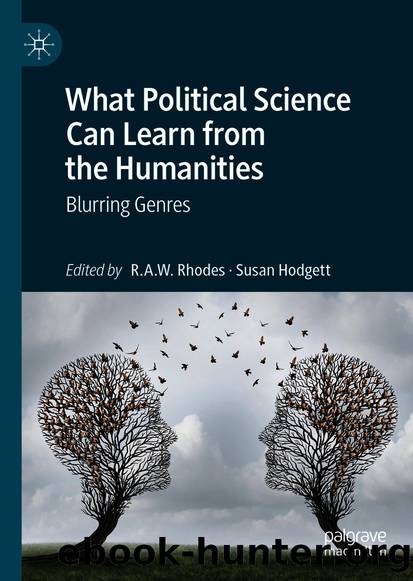What Political Science Can Learn from the Humanities by Unknown

Author:Unknown
Language: eng
Format: epub
ISBN: 9783030516970
Publisher: Springer International Publishing
Research Contexts
Eylem: Itâs interesting because I was listening to the interviews that Lee Jarvis had done with our participant researchers, including your own interview Qudra. One theme that recurred in all the interviews was that Muslim individuals were finding it challenging to reach out to other Muslims to be part of this research project.
Lee J: I think the socio-political contextâincluding the increased securitisation of Islam and Muslimsâis vitally important, and I think thereâs a risk that this had a selective function at a couple of levels. On the one hand, it potentially meant we ended up working with individuals who felt sufficiently empowered as to be unaffected by programmes such as Prevent, and the security brought on by such a detachment likely has diverse class-based, gender-based and other dynamics to it. Alternatively, itâs also possible that we ended up working with individuals who were essentially supportive of the Prevent agenda and the community cohesion discourse and so forth: individuals who were therefore willing to take part in the project. Certainly, in some of the films from Luton and Bedford in particular, there was a strong performative aspect to them, where people were speaking quite openly about a love of Britain and a love of British values.
Lee M: When Lee J and I visited a mosque in Bedford and we were knocking on the door, trying to get inâyou canât get into any of these Islamic centres, because, understandably, they are all locked up and security consciousâwithin a minute or so of arriving somebody came across the road straightaway. The Mosque there is part of a Faith Watch scheme,5 whereby religious centres across Bedford, people watch out for them. For visitors, or things out of the ordinary, in order to protect such places.
So, it did sort of strike home that clearly the community in Bedford feels threatened, but also supported in the environment. The guy who came across the road to us, an estate agent, a Christian from an Asian background was the broker for our research. But it did sort of strike me at that time, and also in other conversations that weâve had, that the project is about trying to break away from the stereotypical David Cameron type of approach to British values. That people, more or less, had to make a judgement themselves about whether they wanted to get involved in the project, knowing that itâs so controversial within their own communities.
Qudra: I was just reflecting on some of the ethical challenges of the research and I think in some ways the discussions around these different issues, such as the intersections of identity and how that affected the films that were made, make for an interesting aspect to the project, which provides rich contextual data which can then be threaded through the analysis?
Lee J: Iâd like to add something to that, becauseâto reflect back on what Lee M was sayingâsomething else occurs to me. I had several long telephone conversations with potential participants in the project who wanted very, very clear commitments in terms of our statutory duty around Prevent and so forth.
Download
This site does not store any files on its server. We only index and link to content provided by other sites. Please contact the content providers to delete copyright contents if any and email us, we'll remove relevant links or contents immediately.
| Africa | Americas |
| Arctic & Antarctica | Asia |
| Australia & Oceania | Europe |
| Middle East | Russia |
| United States | World |
| Ancient Civilizations | Military |
| Historical Study & Educational Resources |
The Third Pole by Mark Synnott(685)
Money for Nothing by Thomas Levenson(632)
Christian Ethics by Wilkens Steve;(576)
The Economist (20210109) by calibre(574)
Made in China by Anna Qu(546)
100 Posters That Changed The World by Salter Colin T.;(502)
Reopening Muslim Minds by Mustafa Akyol(494)
Routledge Handbook of Contemporary India by Knut A. Jacobsen(481)
The Irish Buddhist by Alicia Turner(480)
Nonstate Warfare by Stephen Biddle(472)
Culture by Terry Eagleton(465)
The Age of Louis XIV: The Story of Civilization by Will Durant(460)
The Great Pyramid Void Enigma by Scott Creighton(457)
Ideology by Eagleton Terry;(445)
The Shortest History of China by Linda Jaivin(440)
Banaras: CITY OF LIGHT by Diana L. Eck(431)
Objects of Vision by Saab A. Joan;(430)
The Jews of Silence: A Personal Report on Soviet Jewry by Elie Wiesel(428)
Sybille Bedford by Selina Hastings(418)
